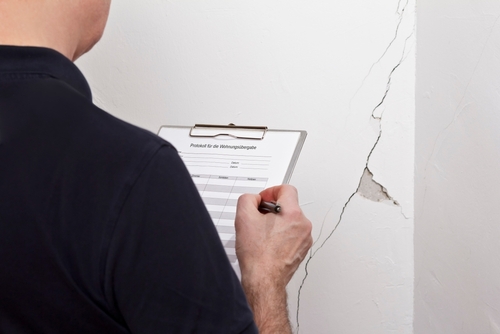Facing Property Damage? Here’s What Texas Law Says About Your Insurance Investigation
When your home suffers damage from storms, fires, or other disasters, you expect your insurance company to be there for you. Yet many Texas property owners find themselves confused and frustrated when their insurer launches an investigation that seems to drag on forever. If you’re wondering why your claim is taking so long or what your insurance company is actually doing during their investigation, you’re not alone. Understanding the legal timeline and your rights during this process can mean the difference between a fair settlement and getting shortchanged on repairs your home desperately needs.
???? Pro Tip: Start documenting damage immediately with photos and videos before making any emergency repairs – this evidence becomes crucial if disputes arise later.
Don’t let insurance woes keep you in the lurch. Connect with JCE Law Group today at 504-754-5884 or contact us to navigate your property damage claims with confidence and peace of mind.
Your Legal Rights During a Texas Property Insurance Investigation
Texas law provides specific protections for property owners during insurance investigations. According to the Texas Insurance Code, your insurer must acknowledge receipt of your claim within 15 days (or 30 business days for surplus lines insurers) and begin their investigation immediately. They’re required to request all items, statements, and forms they reasonably believe they’ll need from you at that time. This prevents insurers from dragging out investigations by repeatedly asking for new documentation. A Houston property damage lawyer can help ensure your insurer follows these strict timelines and doesn’t violate your rights under Texas law.
The Texas Consumer Bill of Rights, codified at 28 Tex. Admin. Code § 5.9970(d), requires insurance companies to send you a copy with your policy and upon renewal. This document outlines your fundamental rights during the claims process. If your insurer fails to comply with Chapter 542, Subchapter B of the Insurance Code, they’re committing unfair claim settlement practices. Understanding these protections helps level the playing field when dealing with insurance companies that may try to delay or minimize your claim.
???? Pro Tip: Request a copy of your Consumer Bill of Rights if you haven’t received one – insurers are legally required to provide it, and knowing your rights strengthens your position.
The Insurance Investigation Timeline: What Deadlines Matter
Texas insurance law establishes clear deadlines that protect property owners from endless delays. Most companies require you to file a claim within one year of the damage unless you can show good cause for delay. Once you file, the clock starts ticking for your insurer. Here’s what you should expect during a property damage insurance investigation in Texas:
- Day 1-15: Insurer must acknowledge your claim and request all needed documentation
- Day 16-30: You must provide requested information within 30 days
- Day 31-45: Insurer has 15 business days after receiving your documentation to accept or reject the claim (with possible 45-day extension if they notify you why)
- Day 46-50: If approved, payment must be made within 5 business days of notification
- Day 60+: If payment is delayed without valid reason, insurer owes 18% annual interest plus attorney fees
- Weather claims: Special 61-day pre-suit notice required under Chapter 542A before filing lawsuit
???? Pro Tip: Mark these deadlines on your calendar and document every interaction – if your insurer misses a deadline, you may be entitled to additional damages beyond your claim amount.
How a Houston Property Damage Lawyer Protects Your Interests
When insurance companies drag their feet or offer lowball settlements, having experienced legal representation makes all the difference. JCE Law Group understands the tactics insurers use to minimize payouts and knows how to counter them effectively. If an insurer delays payment beyond 60 days without valid reason, Texas law entitles you to 18% annual interest as damages plus reasonable attorney fees. This powerful provision gives property owners leverage when insurers act in bad faith.
A Houston property damage lawyer can submit detailed written requests to understand exactly how the insurer is investigating your claim and verify compliance with policy terms. Formal demand letters that summarize facts and explain potential bad faith conduct often motivate insurers to act promptly. When disputes arise, you can contact your adjuster or insurance company directly, but having legal representation ensures your rights are protected throughout the process.
???? Pro Tip: Don’t wait until your claim is denied to consult an attorney – early legal guidance can prevent problems and strengthen your position from the start.
Evidence Collection: Building Your Strongest Case
During the investigation process, insurance companies collect extensive evidence to evaluate your claim. This includes photographs of the accident scene, witness information, police reports, and detailed repair estimates. These materials help establish facts and substantiate your claim. Working with a Houston property damage lawyer ensures you’re gathering the right evidence and presenting it effectively to support maximum recovery.
Critical Documentation You’ll Need
Beyond basic photos, insurers look for specific types of evidence. This includes pre-damage photos showing your property’s condition, receipts for damaged items, contractor estimates from multiple sources, and documentation of additional living expenses if you can’t stay in your home. For weather-related claims, keeping records of the specific date and type of weather event helps establish causation. Remember that only emergency repairs should be made before your insurance company’s inspection – anything beyond stopping immediate damage could jeopardize your claim.
???? Pro Tip: Create a dedicated email folder and physical file for all claim-related documents – organization speeds up the process and prevents important evidence from getting lost.
Special Rules for Weather-Related and Mortgage Properties
Texas law treats weather-related property damage claims differently than other types of damage. Chapter 542A, enacted in 2017, requires property owners to provide 61-day pre-suit notice before filing a lawsuit for weather-related damage. This notice must be sent no later than the 61st day before filing suit. Additionally, under this chapter, insurers have 30 days after receiving pre-suit notice to inspect the property. These requirements add complexity to weather damage claims that a Houston property damage lawyer can help you navigate properly.
Mortgage Company Involvement
If you have a mortgage on your home, the insurance check for repairs will be made out to both you and your mortgage company. You’ll need to endorse the check and send it to the mortgage company, who then controls the disbursement of funds. This process can significantly delay repairs and add frustration to an already stressful situation. Mortgage companies often release funds in stages as repairs progress, requiring multiple inspections and documentation. Understanding this process upfront helps set realistic expectations for your repair timeline.
???? Pro Tip: Contact your mortgage company immediately after filing a claim to understand their specific requirements for releasing insurance funds – each lender has different procedures.
Red Flags: When Insurers Cross the Line
Texas law prohibits specific unfair practices during insurance investigations. Insurers cannot require your federal income tax returns as a condition of settling claims except in cases involving fire loss or claims for lost profits/income. They also cannot attempt in good faith to promptly settle claims where liability has become reasonably clear under one portion of the policy in order to influence settlement under other portions. When you spot these red flags, it’s time to consult a Texas property damage attorney who can hold insurers accountable.
Federal Court Complications
After September 1, 2017, surplus lines insurers gained the ability to remove cases from Texas state court to federal court. This means an out-of-state surplus lines insurance company may assume liability for an in-state adjuster under their employ, potentially moving your case to federal court. This change can complicate litigation and alter the strategies needed to pursue your claim effectively. Having a property damage legal help Houston team that understands both state and federal procedures becomes essential in these situations.
???? Pro Tip: Check if your insurer is a surplus lines carrier – this status affects your legal options and the court where any lawsuit would be filed.
Frequently Asked Questions
Common Concerns About Property Damage Investigations
Property owners facing insurance investigations often share similar worries about timelines, documentation requirements, and their rights during the process. Understanding these common concerns helps you prepare for what’s ahead.
???? Pro Tip: Write down questions as they arise during your claim process – having a list ready makes consultations with adjusters or attorneys more productive.
Next Steps and Legal Process
Knowing when to escalate from working with your adjuster to seeking legal help can make or break your claim’s success. These questions address the most common decision points property owners face.
???? Pro Tip: Don’t sign anything or accept a settlement without understanding all your options – early decisions can limit your ability to recover full damages later.
1. How long can an insurance company investigate my property damage claim in Texas?
Texas law requires insurers to accept or reject your claim within 15 business days after receiving all requested documentation. They can extend this deadline by 45 days if they notify you in writing explaining why they need more time. If they haven’t made a decision after these deadlines, you may have grounds for a bad faith claim.
2. What happens if my insurance company takes longer than 60 days to pay my approved claim?
If an insurer delays payment beyond 60 days without valid reason, Texas law requires them to pay 18% annual interest on the claim amount as damages, plus your reasonable and necessary attorney fees. This provision gives property owners significant leverage when insurers drag their feet on payment.
3. Can I make repairs before the insurance adjuster inspects my property?
Only make emergency repairs before your insurance company’s inspection. Emergency repairs include things like tarping a damaged roof or boarding broken windows to prevent further damage. Document all damage thoroughly with photos and videos before making any repairs, and keep all receipts for emergency work.
4. Do I have to provide my tax returns to settle my property damage claim?
No, Texas law prohibits insurers from requiring federal income tax returns as a condition of settling claims, except in specific circumstances: when ordered by a court, when the claim involves a fire loss, or when the claim involves loss of profits or income. If your insurer demands tax returns outside these exceptions, they’re violating Texas insurance regulations.
5. What’s the deadline for filing a lawsuit if my property damage claim is wrongfully denied?
You must file suit on or before the second anniversary of the date you were denied coverage or treated unfairly, or the date you reasonably should have discovered the unfair denial or treatment. For weather-related claims, remember you must also provide 61-day pre-suit notice before filing. Missing these deadlines can permanently bar your right to recover.
Work with a Trusted Property Damage Lawyer
Insurance investigations can feel overwhelming, especially when you’re already dealing with property damage and displacement from your home. Texas law provides strong protections for property owners, but insurance companies have teams of lawyers working to minimize payouts. Having an experienced advocate on your side levels the playing field and ensures your rights are protected throughout the investigation process. Whether you’re facing delays, lowball offers, or outright denials, understanding your options and acting quickly can make the difference between a fair settlement and financial hardship.
Facing a long, drawn-out property damage insurance claim can be overwhelming. Don’t waste another minute feeling stuck—let JCE Law Group pave the way to a fair resolution. Reach out at 504-754-5884 or contact us and gain the peace of mind you deserve.



